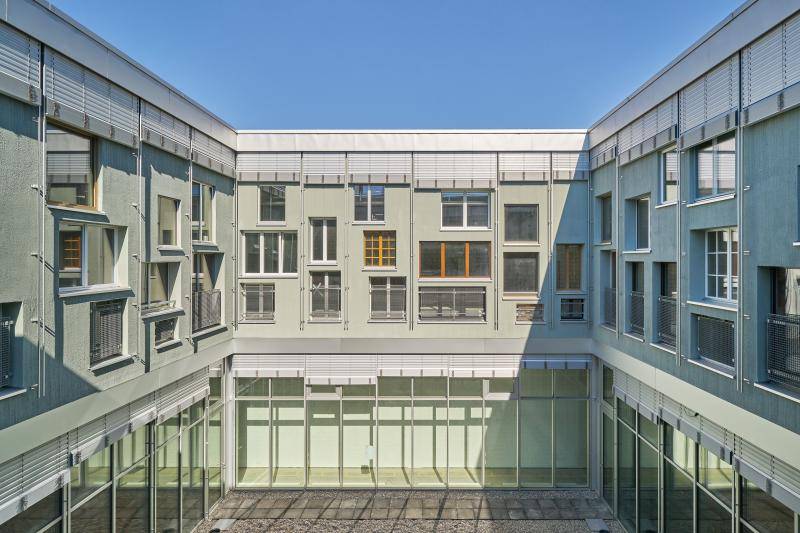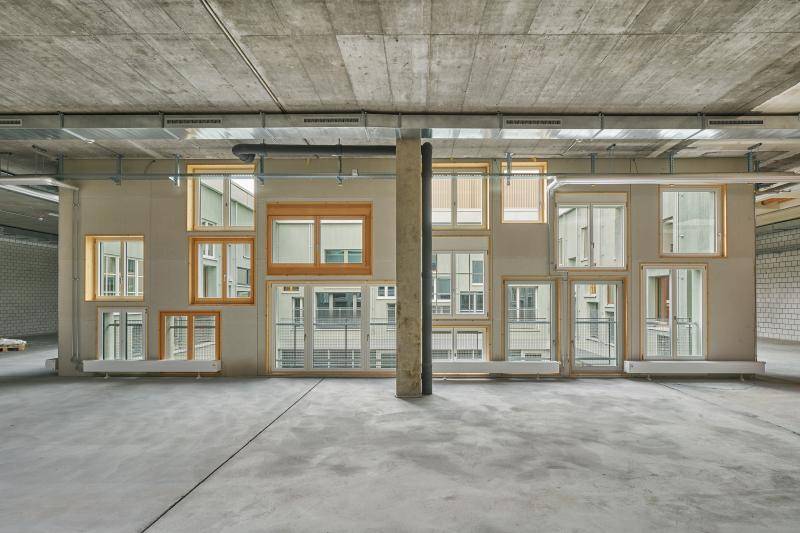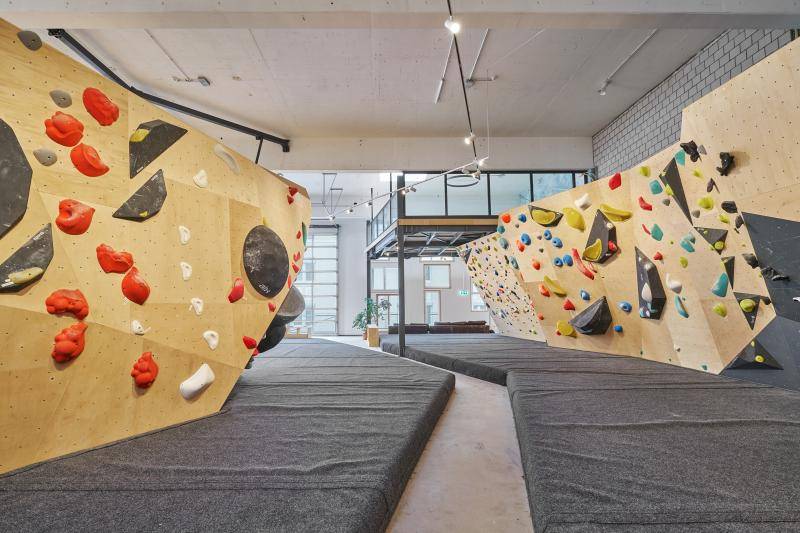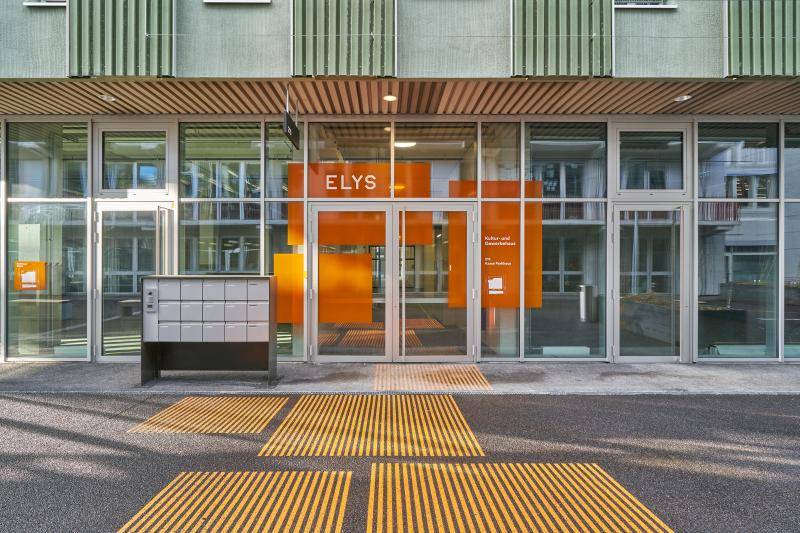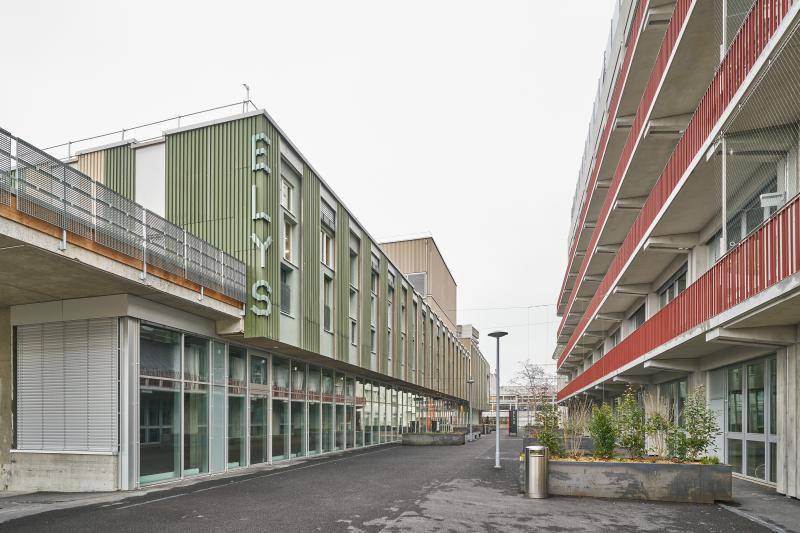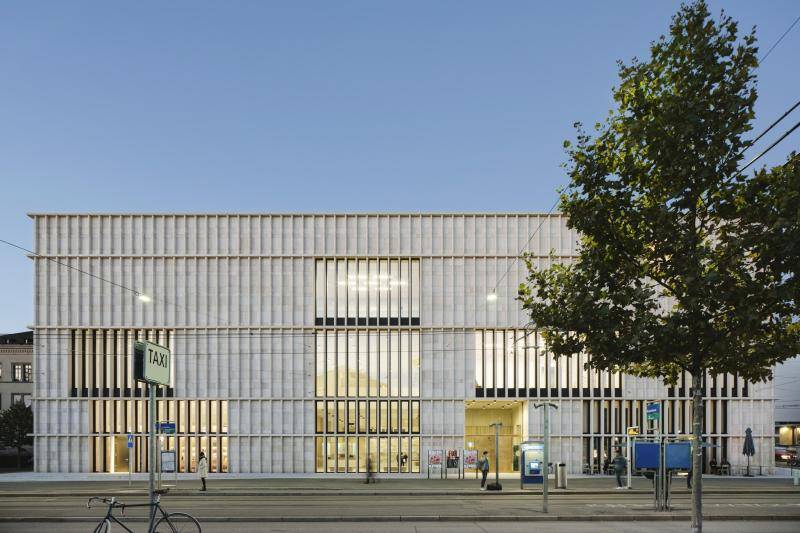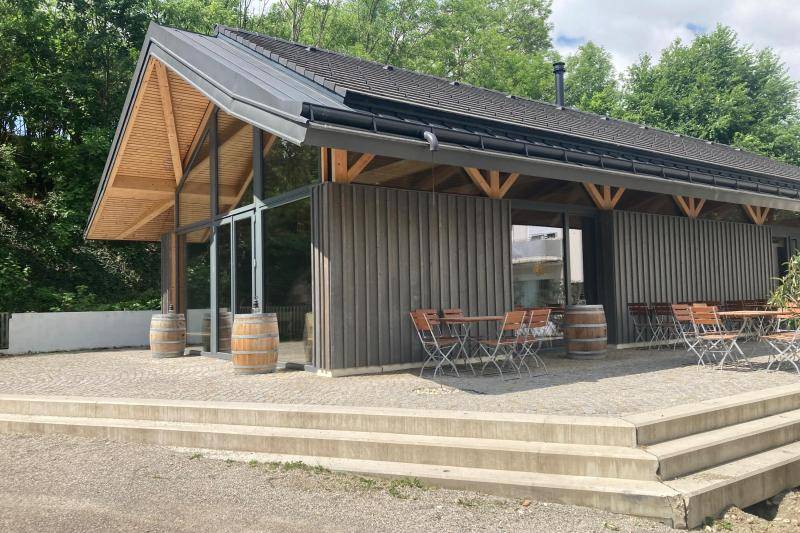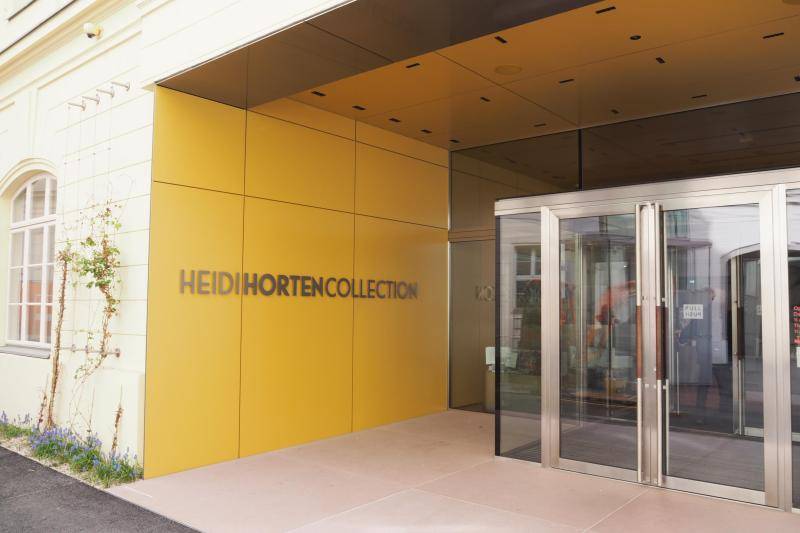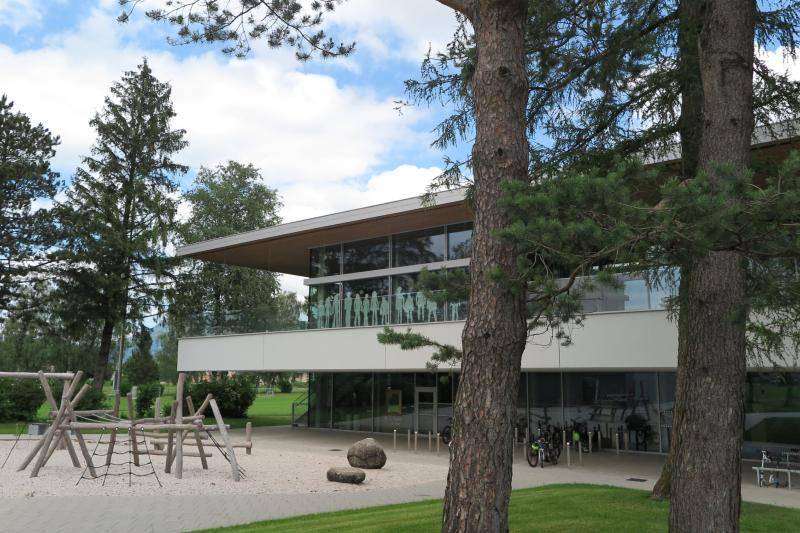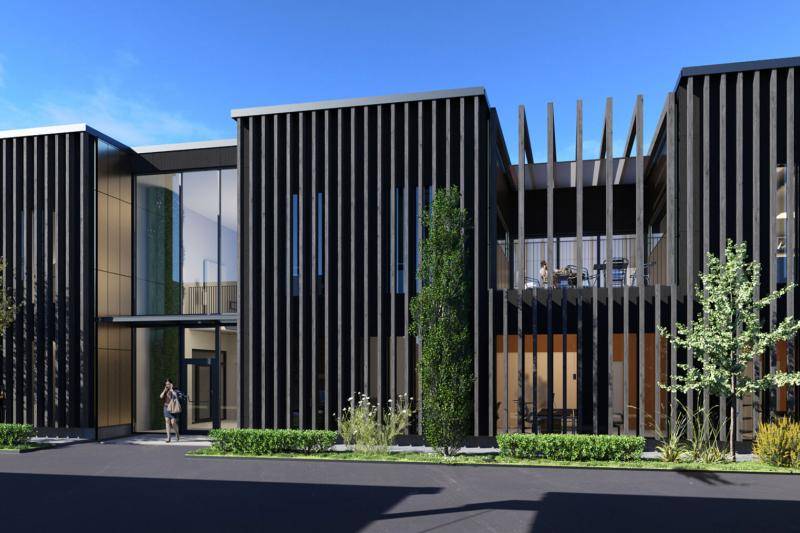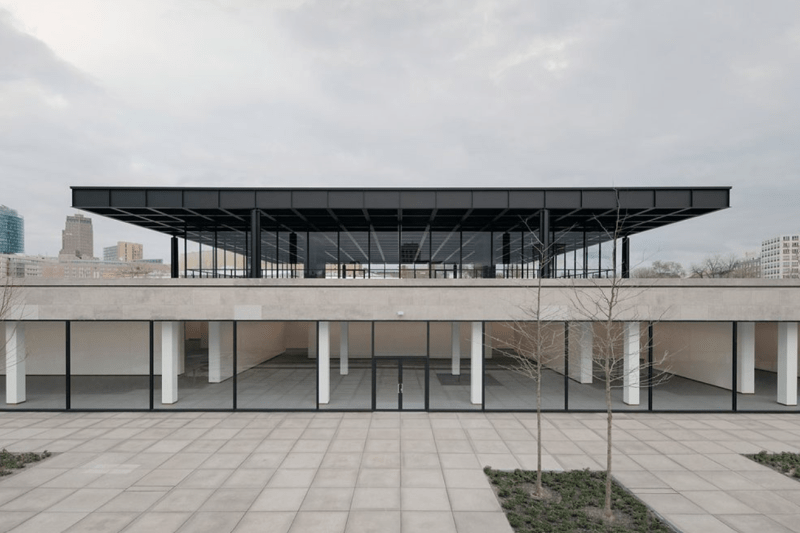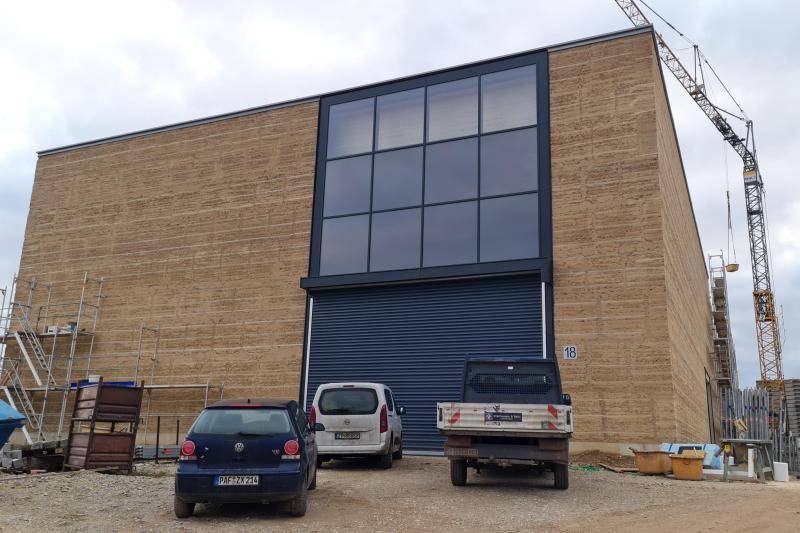Adaptive reuse of Elys cultural and commercial building (Lysbüchelareal)
At the Lysbüchel site in Basel, a former Coop distribution center was converted into the Elys cultural and commercial building. The aim was to open up the structure by partially deconstructing and densifying it, creating a new eastern facade and a central lightwell while applying resource-efficient strategies throughout.
2021
25 000 m²
Immobilien Basel-Stadt
Structural engineering: Jauslin Stebler AG
Building services engineering: RMB Engineering, Basel
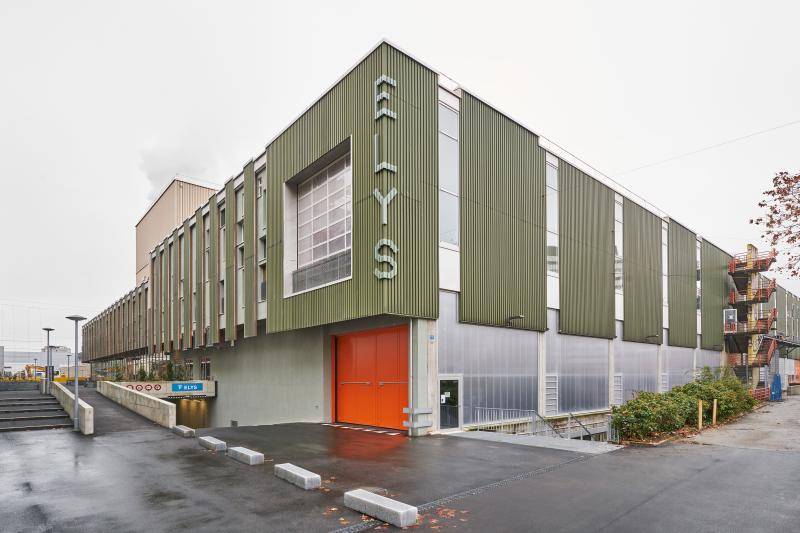
A targeted deconstruction along the building’s southeastern side opened up the deep volume of the existing structure to allow natural light and ventilation. In this area, a new façade of approximately 1,000 m² was added using modular timber frame construction. The system was designed to be fully demountable, enabling future adaptation to changing use cycles.
Roughly 150 m³ of reclaimed structural timber was reused for the load-bearing elements. Rafters, purlins and glulam beams were cleaned, resized, and reprocessed into new laminated timber components. Where reused material was not sufficient, certified Swiss timber was added. The insulation also relied heavily on secondary materials: reprocessed mineral wool offcuts from regional construction sites were combined with clean, mono-material granulate and installed in the prefabricated timber frame elements.
Particular emphasis was placed on the reuse of façade components. Around 200 second-hand windows from various sources were acquired, inspected, and integrated into the new façade. These meet current energy standards while contributing to a visually varied and layered appearance. Additional components such as trapezoidal sheet metal, aluminium cladding, and steel grilles were reclaimed from demolition or repurposed from the original building.
The use of reclaimed materials led to a direct saving of approximately 91 tonnes of CO₂. Retaining the existing load-bearing structure avoided an additional 7,000 tonnes of CO₂ equivalents. The newly created spaces were handed over in a raw, unfinished state, allowing future tenants a high degree of flexibility in fit-out and use. The result is a robust and adaptable building structure that combines circular construction principles with functional openness and architectural clarity.
Today, Elys accommodates studios, workshops, sports and cultural spaces, as well as gastronomy and commercial uses. The former industrial building now serves a wide range of user groups with diverse spatial needs.
